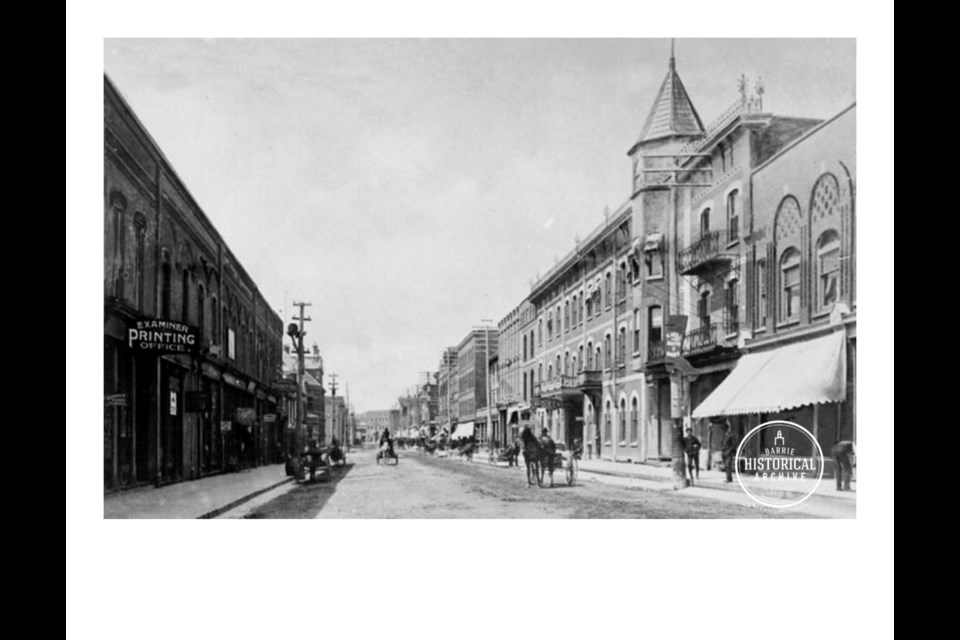“You were born a day too late for Robbie Burns Day,” my mother was often heard to say, and she seemed genuinely disappointed by this fact.
When you stop to think about it, Robbie Burns Day is a strange celebration indeed. A common man, no king nor saint, whose brief life ended nearly 200 years ago, is celebrated in the grandest of fashion every Jan. 25. A giant sausage on a platter, accompanied by a bagpiper, is paraded into a well-appointed dining room where it is toasted with whisky, ceremoniously sliced and consumed.
To understand the tradition, you have to understand the Scot. Royalty, battles and mighty stone castles often come to mind when thinking about this ancient land, but most Scottish people respect above all the everyday folks, the hard-working honest people who might be counted as peasants.
Robert Burns was one of these people.
Born into poverty in 1759, he tried his hand at farming as his father had done, and at flax processing, and had very nearly boarded a ship to Jamaica to work for his brother who oversaw slaves at a sugar plantation.
Burns was not very successful in his working life but was very good at two things – wooing the ladies and writing poetry!
Soon, his enjoyment of female company would lead to the arrival of children, and to more financial difficulty as the mothers demanded support.
With nothing to lose, Robert Burns took the advice of a friend and sent some of the many poems he had been writing off for consideration. He could certainly do with any pennies that resulted from their publication and sale.
The difference between Burns and other contemporary well-educated, connected and finely written poets was the language used. Instead of the accepted proper English, Robert Burns wrote his works in what is often called Broad Scots, a dialect still found today in Scotland. It is a version of English, heavily peppered with local words and bits of the Gaelic language. It was the common man’s voice.
While he began to see some financial success from his wildly popular poems towards the end of the 18th century, his health declined and he died in 1796 at only 37 years of age. Within a decade, the tradition of Burns suppers began near his birthplace in Ayrshire, Scotland.
Scottish immigrants to Canada brought the custom with them and, not surprisingly, it spread to most towns of any size, including Barrie. It must have been a welcome distraction in the middle of a long Upper Canada winter.
“On that evening a most successful Scottish banquet was held in the Queen’s Hotel under the auspices of Balmoral Camp No. 10, Sons of Scotland. The spacious dining room of the Queen’s was tastefully decorated in Scottish flags and bunting while the tables, arranged in the most social manner, were brightened by hot house plants and flowers.”
This event, held on Jan. 25, 1895, was reported on by the Northern Advance a few days afterwards.
“Over a hundred guests, half of whom were ladies, sat down to a most tempting menu such as Mr. Brown of the Queen’s Hotel is noted for. The haggis and other Scotch dishes were done full justice to, after which chairman D.H. McLaren introduced the toast list with a few appropriate and well-chosen remarks.”
The evening was rounded out by the singing of songs — some Burns’ works and others anthems and patriotic pieces. Everyone from the ladies in the room to Queen Victoria herself were toasted to, and many of Burns’ best poems were recited.
“The delightful evening closed before midnight by singing ‘Auld Lang Syne’ in the orthodox Scottish manner.”
Each week, the Barrie Historical Archive provides BarrieToday readers with a glimpse of the city’s past. This unique column features photos and stories from years gone by and is sure to appeal to the historian in each of us.



